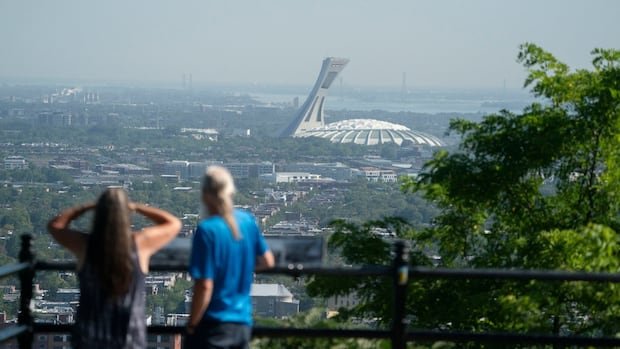Even prior to the official launch of the mayoral campaign, the competition for the next mayor of Montreal has been gaining momentum over the summer months. While the municipal election campaign is set to commence in mid-September, with the voting day scheduled for November 2, several mayoral candidates have been actively making announcements throughout August.
The upcoming election guarantees a new mayor for Montreal as Valérie Plante, the incumbent mayor for the past eight years, declared earlier this year that she would not seek re-election. Luc Rabouin, the borough mayor of Plateau-Mont-Royal and the new leader of Projet Montréal, is vying for the mayoral position. He faces competition from Soraya Martinez Ferrada, leader of Ensemble Montréal and a former federal cabinet minister and MP for Hochelaga, as well as Craig Sauvé, a city councillor in Montreal’s Sud-Ouest borough, who is running under his newly formed party, Transition Montréal. Other contenders include Jean-François Kacou representing Futur Montréal and Gilbert Thibodeau from Action Montréal.
In preparation for the race, Rabouin has distanced himself from some of Plante’s controversial policies. He has pledged to postpone the closure of Camilien-Houde Way, the road leading up Mount Royal, to vehicular traffic, ensuring that the revised plan includes a public transit alternative. Rabouin also intends to revoke the Plante administration’s 20-20-20 housing bylaw, which has not been successful in encouraging developers to invest in social housing projects. Additionally, Rabouin announced a plan to reinstate weekly garbage collection during the summer months in the Mercier-Hochelaga-Maisonneuve borough, a promise also made by Ferrada.
Ferrada has been actively campaigning by making a series of announcements throughout July and August. Her proposals include utilizing artificial intelligence to enhance traffic flow and construction planning, auditing the city’s bike paths, simplifying the process for businesses to obtain terrace permits, and addressing youth crime by allocating more resources. She has emphasized her commitment to listening to Montrealers and has unveiled her campaign slogan, “Listen and Act,” highlighting her responsiveness to residents’ concerns.
On the other hand, Sauvé’s Transition Montréal party has outlined plans to reduce police funding, allocate more resources to long-term homelessness programs, and impose taxes on owners of single-family properties valued above $3.5 million to support homelessness initiatives.
As the official election campaign is set to kick off on September 19, with the voting day scheduled for November 2, candidates are gearing up for the final stretch of the race. The last election saw a participation rate of 38% among eligible voters in Montreal, with Plante securing 52% of the vote.


